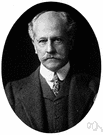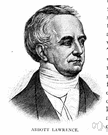Low·ell
(lō′əl) A city of northeast Massachusetts on the Merrimack River northwest of Boston. Developed by a group of industrialists in the 1820s, it was a major textile center into the first half of the 1900s.
American Heritage® Dictionary of the English Language, Fifth Edition. Copyright © 2016 by Houghton Mifflin Harcourt Publishing Company. Published by Houghton Mifflin Harcourt Publishing Company. All rights reserved.
Lowell
(ˈləʊəl)n
1. (Biography) Amy (Lawrence). 1874–1925, US imagist poet and critic
2. (Biography) James Russell. 1819–91, US poet, essayist, and diplomat, noted for his series of poems in Yankee dialect, Biglow Papers (1848; 1867)
3. (Biography) Robert (Traill Spence). 1917–77, US poet. His volumes of verse include Lord Weary's Castle (1946), Life Studies (1959), For the Union Dead (1964), and a book of free translations of European poems, Imitations (1961)
Collins English Dictionary – Complete and Unabridged, 12th Edition 2014 © HarperCollins Publishers 1991, 1994, 1998, 2000, 2003, 2006, 2007, 2009, 2011, 2014
Low•ell
(ˈloʊ əl)n.
1. Amy, 1874–1925, U.S. poet and critic.
2. James Russell, 1819–91, U.S. poet, essayist, and diplomat.
3. Percival, 1855–1916, U.S. astronomer (brother of Amy Lowell).
4. Robert, 1917–77, U.S. poet.
5. a city in NE Massachusetts, on the Merrimack River. 100,973.
Random House Kernerman Webster's College Dictionary, © 2010 K Dictionaries Ltd. Copyright 2005, 1997, 1991 by Random House, Inc. All rights reserved.
ThesaurusAntonymsRelated WordsSynonymsLegend:
| Noun | 1. | Lowell - United States poet (1917-1977) |
| 2. |  Lowell - United States astronomer whose studies of Mars led him to conclude that Mars was inhabited (1855-1916) Lowell - United States astronomer whose studies of Mars led him to conclude that Mars was inhabited (1855-1916) | |
| 3. |  Lowell - United States poet (1874-1925) Lowell - United States poet (1874-1925) | |
| 4. |  Lowell - United States educator and president of Harvard University (1856-1943) Lowell - United States educator and president of Harvard University (1856-1943) |
Based on WordNet 3.0, Farlex clipart collection. © 2003-2012 Princeton University, Farlex Inc.